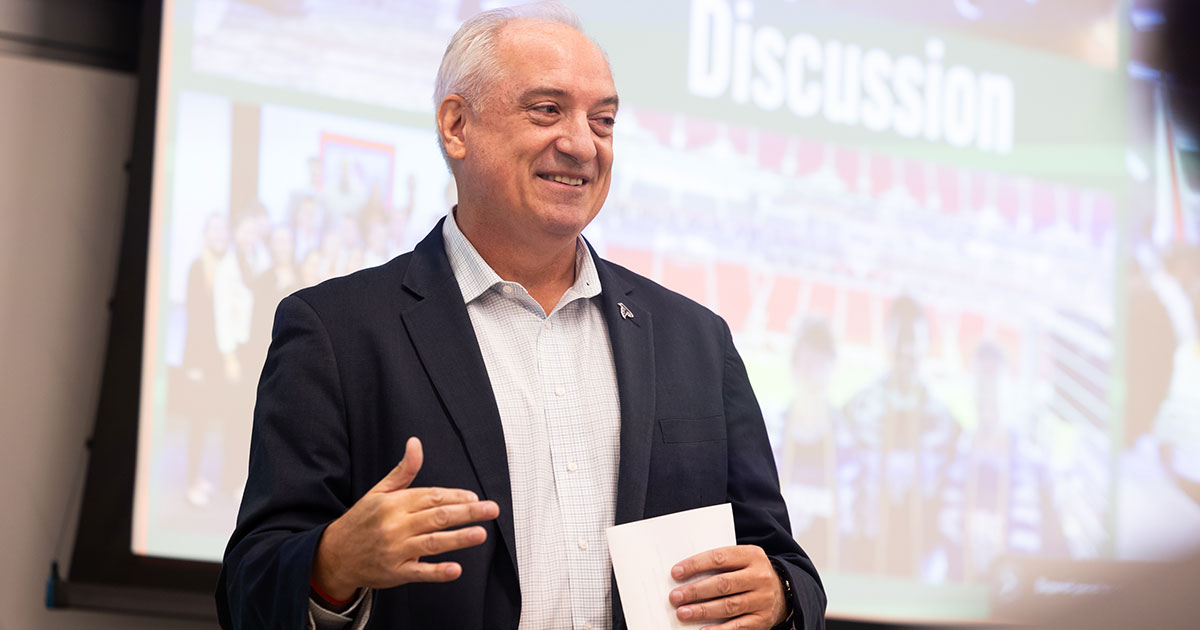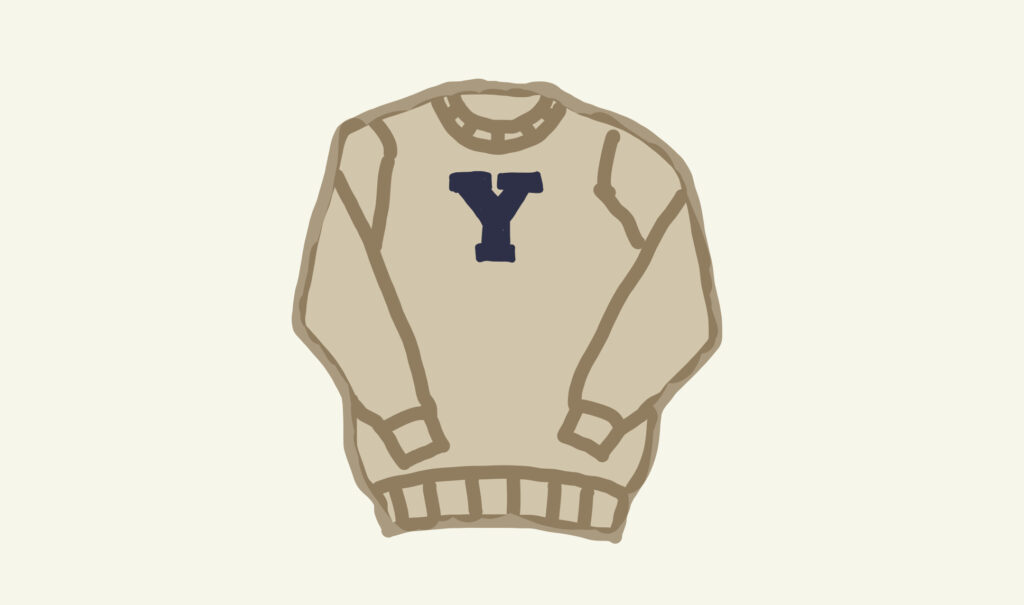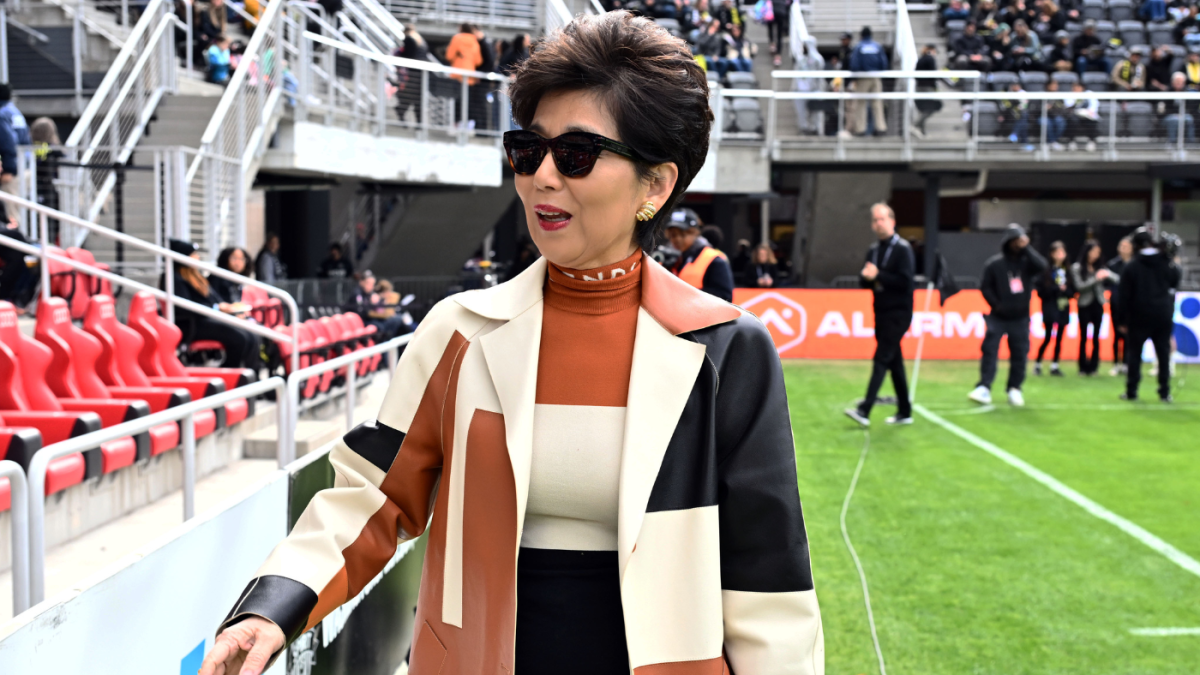Sports
Career Advice and Insider Insights from the World of Sports · Babson Thought & Action

Anjali Bal hears from many Babson students who want to work in sports, an industry that, from the outside, can feel like a difficult field to find a foothold.
So, during a recent panel discussion at Babson, the associate professor of marketing turned to Brett Jewkes and asked what advice he might have for those sports-focused students.
Jewkes had a lot to say. He has spent years working in communications within the industry, including at NASCAR, where he was chief communications officer. Since 2015, he has been an integral part of The Blank Family of Businesses, which includes the Atlanta Falcons, Atlanta United, and Mercedes-Benz Stadium.
“I’m sitting here 30 years and three months into my career,” said Jewkes, the executive vice president and chief brand and communications officer at The Blank Family of Businesses. “I’ve seen and done almost everything I dreamed of doing.”
Jewkes is a frequent visitor to Babson’s campus. He enjoys its energy and beauty and the bright students who call it home. “I love what I feel when I come here,” he said. Last month, after hearing student presentations in the annual Good Game, Good Company course, he participated in a marketing panel discussion with Bal at the newly opened Herring Family Entrepreneurship Village.
Drawing upon his many experiences, Jewkes not only provided advice on breaking into sports but also offered thoughts on how to build brand loyalty and create a great fan experience. Such insider insights helped to illuminate the business and inner workings of sports, fitting topics for an audience at Babson, which this academic year began offering a popular sports management concentration.
“Integrating the sports world into Babson is essential for the long-term success of the concentration,” said Bal, whose research focuses on sports and entertainment marketing. “Mr. Jewkes engaged with students about applying classroom concepts to real-world scenarios.”
Here are a few of Jewkes’ insights on working in sports and delivering memorable experiences for fans.
Take the Opportunity Available
Finding a job in the sports world is not as hard as people think, Jewkes said. The problem is that when college graduates try to land a position in sports, they often aim too high, applying to teams in the major professional leagues and missing opportunities at the lower levels of professional and collegiate sports. The major league teams and leagues receive thousands of resumes from job seekers. “Those are the hardest ones to crack into for someone just entering the field,” he said.
Instead, Jewkes advised students to start smaller, and he used himself as an example. His first job out of college was working in the sports information office at Southern Utah University in Cedar City, Utah. He wasn’t well paid, and the department was small, but the job allowed him to try his hand at a wide range of tasks, everything from writing speeches for the university president to selling scoreboard signage and program ads.
It was a job he loved, and it proved a sturdy springboard for the rest of his career. “I took an opportunity that was there and maximized it, and that created another opportunity,” Jewkes said. “It was the greatest break I ever got, and it was in a small town at a small athletic program.”
Know Your Customers
Besides looking at sports as a career, Jewkes discussed his work and the challenges he faces, such as the dynamic nature of team rosters, which can make it hard for an audience to identify with a team when the players are constantly changing, and the rise of fantasy football, which often takes fans’ attention and passion away from teams and instead redirects it to individual players scattered across the league.
A big focus of Jewkes’ work, simply stated, is on making sure fans watch the Falcons on TV and attend games at the stadium. “It’s like any other marketing challenge. You must really know your customers,” he said. “We do a ton of research on who are fans are so we can best reach them through their preferred channels.”
“I’m sitting here 30 years and three months into my career. I’ve seen and done almost everything I dreamed of doing.”
Brett Jewkes, the executive vice president and chief brand and communications officer at The Blank Family of Businesses
One thing the research showed was that fans weren’t necessarily looking solely to traditional TV programs, whether ESPN’s “SportsCenter” or their local nightly news broadcast, as they once did for their sports news. With consumption of content via digital, social, and mobile platforms booming, the Falcons built an in-house studio several years ago to produce custom content for fans. “We want to reach them the way they want to be reached,” Jewkes said, “with content that is relevant, timely, and connects them to our players and team.”
Once fans come to the stadium, the team works to ensure they have an enjoyable time, which means, among other things, that they can easily use their phones to text friends and check on their fantasy teams while watching the game. To that end, the Falcons have invested millions of dollars in Wi-Fi at the stadium. “We have to have the fans leave saying they had a great experience on their terms, not ours,” Jewkes said.
Focus on Pride
So, what happens when a team’s roster drastically changes, or worse, when an organization loses star players? How can they maintain fan interest?
Jewkes looked back at NASCAR during a period, around 2008, when a slew of star drivers had retired and the economy hit a downturn, which meant many fans couldn’t afford to make the dayslong visits to racetracks that they usually did. It was a tough time for the sport. “The challenges were steep,” he said, “and with so much star power stepping away, the sport had to work hard to stay relevant in a star-driven marketplace.”
“Integrating the sports world into Babson is essential for the long-term success of the concentration.”
Anjali Bal, associate professor of marketing, on the new sports management concentration at Babson
That’s when NASCAR made a pivot in its marketing, a pivot that again demonstrated the importance of knowing one’s fans. “During that time, almost all of the marketing about NASCAR was designed to build driver star power,” Jewkes said, “and to remind fans of the unique at-track experience only NASCAR could provide, including the community of fans that is uniquely NASCAR.”
By emphasizing gathering at racetracks, tailgating, and reuniting with friends and family, with a bit of racing thrown in, the marketing successfully tapped into the pride that fans felt in NASCAR and its community. These were fans who often felt marginalized in the larger sports world, but with each other, they had found a tribe.
“NASCAR fans wear their fandom like a badge, and part of the reason they wear it like a badge is because the sport, drivers, and everything about the experience lets them be their authentic selves,” Jewkes said. “In my experience, NASCAR fans are prouder of being a fan of their overall sport than any other fan. They will tell you ‘I’m a NASCAR fan,’ where fans of almost any other sport will say they’re a fan of a particular team or player.”
Posted in Insights









